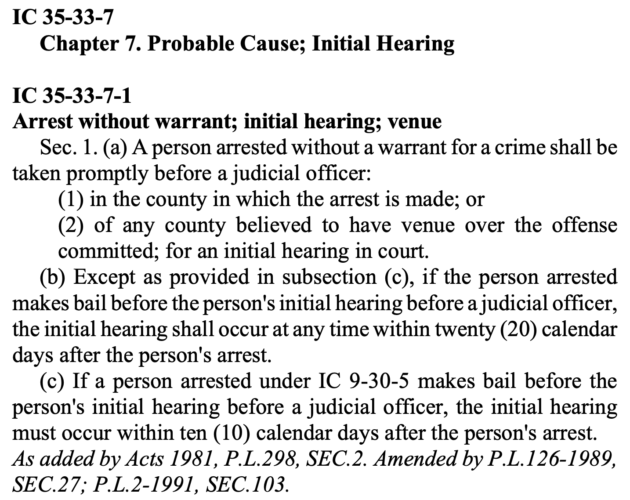Being charged with a crime – whether it’s your first time or you’ve been through the process before – can be an intimidating and mystifying process. Defendants often feel a sense of fear, helplessness, and anxiety in regards to the process they are about to undergo. The first step in that process is usually the initial hearing, and in this article we will outline exactly what that is, and what you can expect if you have one approaching.
Most criminal cases, whether they are misdemeanors or felonies, are divided into various stages. Those stages typically include some variation of the following: First, the state will arrest and/or file formal charges against the defendant. Next, the defendant will be brought in for a first formal hearing (this may be known variously as an initial hearing, arraignment, or other term, depending on the jurisdiction), at which the defendant is advised of the charges against him. The next stage consists one or more “pretrial conferences,” during which the defendant or his counsel will meet with the prosecutor for such purposes as exchange of discovery, receiving any proposed plea deals, and determining what items the parties will stipulate to if the matter goes to trial. The final stage of a criminal case is the trial and, in some cases, a post-trial sentencing hearing.
Initial hearings in Indiana are governed by Indiana Code § 35-33-7-1.

Initial hearings are meant to serve as a first stop for a defendant, to advise them of their rights, and give them the opportunity to formally enter a plea. If the situation warrants, a judge may also use this hearing to make a determination on bail for a defendant. In some cases, initial hearings may be waived by the defendant’s filing of a motion which informs the court how they wish to plea, assures the court that they have received all of their proper notices, and asks the court to set a future hearing. You should speak with an attorney to determine if this is a possibility in your case.
While criminal proceedings can certainly be intimidating, a defendant who is armed with information, prepared, and (ideally) represented by counsel, need not be overly anxious about such a situation. Consider speaking with an experienced criminal law attorney to assist you at the initial hearing stage and beyond.
Contact us if you have any additional questions or need assistance with a legal matter.
NOTE
All legal references are made with respect to Indiana law. Please check the laws of your local jurisdiction if you live in another state.
The articles in this blog are for informational purposes only. No attorney-client relationship is established through the publication of these articles.







